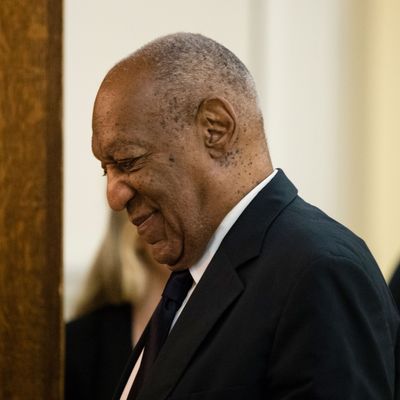
As the jury deliberates for the second day in the trial of the Commonwealth v. William Henry Cosby, a case that has mesmerized the public with its graphic testimony about sex, money, and drugs, the big question is what could possibly be going on behind closed doors in the jury room at the Montgomery County Courthouse just outside of Philadelphia.
“There really isn’t a standard process that jurors do this by,” said Melissa Gomez, a jury expert and author of the book Jury Trials Outside In. Gomez, who has worked on more than 600 trials, said each jury tends to be about as unique as the personalities involved.
For this case, jurors were selected from Pittsburgh’s Allegheny County in hopes that both the prosecution and defense could assemble an agreed-upon, unbiased jury that would not have ties to Cosby’s hometown of Philadelphia. The selection process, as can be expected for such a high-profile case, was nothing short of rigorous. Dogged by controversy from the start, a big question was whether the racial makeup of the jury (two African-Americans and ten Caucasians) would ultimately impact the verdict unfairly.
“There’s a lot of psychology involved in litigation,” said Gomez, who expects that even more than race, this jury will need to consider celebrity, and specifically whether Cosby is a wholesome father like the one he portrayed on TV or if he used fame to assault a young woman who worked at the school where he was held in very high regard.
Andrea Constand, a former women’s sports director who worked at Temple University where Cosby served on the board of trustees, testified that during an evening in 2004 at Cosby’s suburban Philadelphia home, the comedian gave her pills and sexually assaulted her. Cosby, who never testified during the trial, said the sexual relationship with Constand was consensual.
Gomez said she’s “not surprised” the defense didn’t call Cosby to testify during the weeklong trial. It can be a huge risk, especially in a celebrity case. “They are dealing with a case of he said, she said,” Gomez noted. And while the jurors were certainly waiting to hear Cosby’s side of the story, the burden of proof ultimately rests on the prosecution to prove the case. But by not coming forward, the jurors could think Cosby’s hiding something.
“The jurors are going to think there’s a reason he’s not testifying,” said Gomez. “Bill Cosby in the ’80s and ’90s was not only a champion for African-Americans, but also a champion of strong women.” Consider the mother on The Cosby Show. “She was a high-powered attorney,” said Gomez. “He had this message of high-powered women and family values.”
But fast forward and now the focus is on the TV dad’s very public adultery, and more to the point, the three counts of felony aggravated indecent assault that he was charged with 17 months ago.
“The thing that he is being accused of is a direct affront to the values that he so strongly put into our community and the impact that he made on society as the result of those values,” said Gomez. As such, it may take a while to sort out the complexities of the case.
“If [the jury] is taking a good bit of time there could be several reasons,” said Gomez. “The defense likes a longer deliberation. It shows that they are being thoughtful and going through evidence, but it could also just mean there are differences of opinion on the panel.”
When the jury makes its decision in hours, days, or weeks, the foreperson will alert the court and everyone who is important to the case will be asked to return to the courtroom — this includes the legal teams and Cosby himself. Constand is also expected to be present as each of the three counts is read aloud.
There are three possible scenarios that could happen next. If Cosby is found guilty on any of the charges, he could face up to ten years in prison and be fined $25,000 for each count. If he’s exonerated, he cannot be tried on the same charges again. And given the statute of limitations, it’s unlikely any of the other dozens of accusers will be able to bring charges against Cosby. Constand was the only accuser whose allegations fell within the allowable time frame for prosecution.
The third possibility is the bane of both the defense and prosecution teams: a hung jury. If the jurors in this case cannot come to a verdict, a new jury would have to be selected and a whole new trial would get underway.

